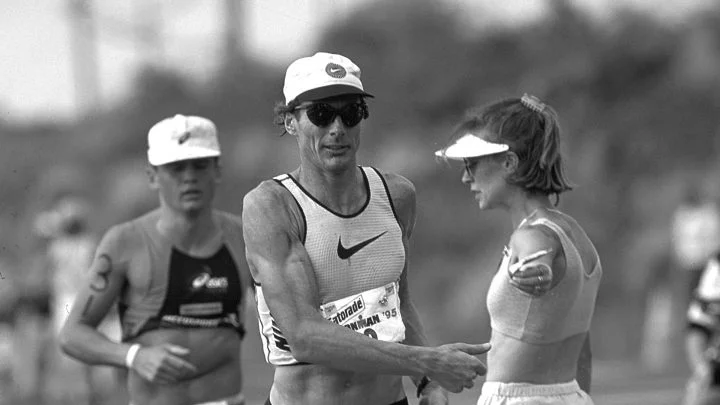In the world of triathlon, few names resonate with the same power and prestige as Mark Allen. Known as the "Grip" for his remarkable ability to hold steady under immense pressure, Mark Allen's career is a testament to resilience, determination, and the relentless pursuit of excellence. At our recent convention, we had the honor of welcoming this six-time IRONMAN World Champion to share his insights on athletic performance and the pivotal role strength training has played in his extraordinary journey.
The Road to Greatness
Mark Allen’s path to becoming a legend in triathlon was anything but straightforward. Born on January 12, 1958, in Glendale, California, Allen’s early life was marked by a passion for swimming, which he pursued vigorously at UC San Diego. Despite his prowess in the pool, Allen faced numerous setbacks in the early stages of his triathlon career. After six consecutive losses at the IRONMAN World Championships, often at the hands of his formidable rival Dave Scott, Allen’s persistence paid off. In 1989, he claimed his first IRONMAN victory, marking the beginning of a reign that saw him win the title six times.


